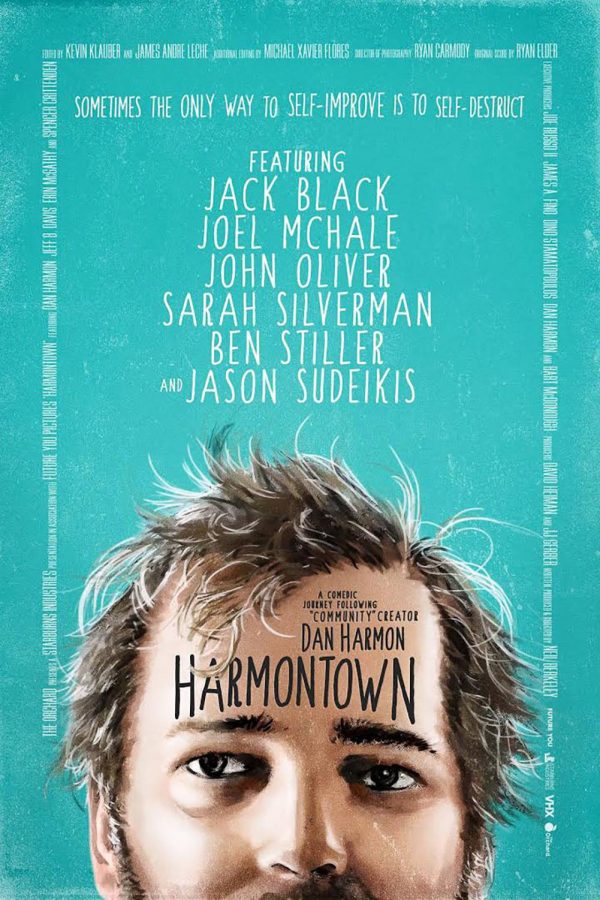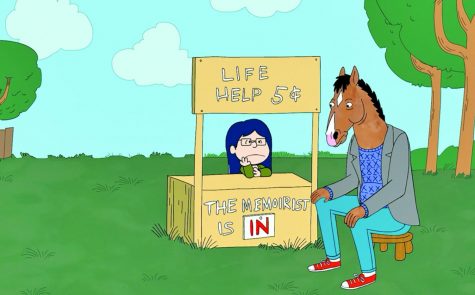Documentary follows ups, downs of alcoholic podcaster
The documentary ‘Harmontown’ explores the creation of the podcast ‘Harmontown’ and the community that revolved around it.
Television writer and podcaster Dan Harmon proves that he can create an overwhelming sense of belonging in his latest show, “Harmontown.” The documentary, also titled “Harmontown” and produced by Harmon himself, explores that creation of a community through honesty.
In 2012, Harmon declared he was going to perfect a society by establishing a colony on the moon. Along with comedian and actor Jeff B. Davis, the two established the settlement of Harmontown in a podcast, in which Harmon serves as mayor and Davis takes the role of comptroller. Davis’ role is mainly to keep Harmon on track and to provide sound effects for the show.
“Harmontown” began as a podcast after Harmon was fired from his hit show, “Community.” As the podcast became more popular, it went from a monthly release to weekly. Eventually, the podcast went on tour across the country, resulting in a documentary which was also called by the same name.
The documentary follows Harmon, Davis, Harmon’s girlfriend Erin McGathy and Spencer Crittenden, a fan of the podcast, who was gifted with the role of dungeon master in an earlier episode. The group travels across the country, performing for a variety of crowds and focusing loosely on Harmon’s life and experiences.
In essence, “Harmontown,” both the documentary and podcast, are about a man reaching out to his fans and connecting with them in a manner that his writing fails to do. Harmon is just a man who wants to make the world happy. He might fall short of this, but by failing he is able to make outsiders feel accepted.
The documentary bounces between the highs and lows of the tour, going from Harmon meeting and bonding with fans to his destructive tendencies as a self proclaimed alcoholic.
In the interviews from stars of the series “Community,” and other people from Harmon’s life, one phrase rings truer than any other: Actor John Oliver describes Harmon as a “human hand grenade with a predilection for pulling his own pin out.”
One scene from the documentary stands out as a heart-wrenching example of the performer’s alcoholism. Harmon and McGathy get into a large fight, serving as a moment where Harmon comes to realize that he needs to grow up and that maybe he isn’t the hero of the story. In fact, Harmon states that the true hero of the tour’s story is Crittenden, having been removed from his established world, and thrust into a new one. Harmon figures that because he has taken Crittenden from his average world, and watched the man grow as a person and learn new lessons, that it is in fact Crittenden who must be the story’s hero.
This revelation drives the later part of the tour and Harmon realizes he needs to stop putting off finishing his two commissioned scripts. Not only does he finish one, but he also manages to find himself in a better place emotionally and with his relationships.
A fair warning to anyone reading this review, Harmon’s brand of comedy and way of addressing the world and audience is not for everyone. It is crude, rude and brutally honest.
The documentary best reaches fans of his previous works, as well as those unfamiliar with his work but that feel alone and want to ease the pain. In the end, it’s the story of a man trying to reach out and put a smile on any face, sometimes hurting himself to do so.











